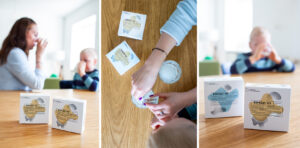
„Trzeba powiedzieć nie i krzyczeć”. Ekspert z Fundacji Dajemy Dzieciom Siłę o tym, jak rozmawiać z dzieckiem o molestowaniu
Marianna Fijewska: Pani Joanno, zanim zapytam, jak rozmawiać z dzieckiem o zagrożeniu, jakim jest wykorzystywanie seksualne, najpierw powinnam się chyba upewnić, czy w ogóle warto taki temat poruszać? Ktoś mógłby powiedzieć, że nie ma sensu straszyć dziecka, skoro nic złego się nie wydarzyło.
Joanna Klocek: Nie warto straszyć, ale warto rozmawiać z dzieckiem o zagrożeniach związanych z molestowaniem. Dzięki temu maluch będzie uważny na wszelkie niepokojące sygnały. Damy mu narzędzia do tego, by w chwili zagrożenia odpowiednio zareagował. Już od najmłodszych lat warto uświadamiać dziecko, że nie każdemu należy ufać, że nie każdy ma dobre intencje. Nie chodzi o to, by wmawiać mu, że świat jest zły i że ma kroczyć po nim pełne lęku. Wręcz przeciwnie- chodzi o to, by uświadomić je, że są normy i granice, które dają ludziom poczucie bezpieczeństwa.
W jakim wieku warto zacząć taką rozmowę?
Właściwie na każdym etapie życie warto ją kontynuować i na każdym etapie życia będzie ona nieco inna. Radziłabym rozmawiać o granicach i intymności od samego początku. Gdy dziecko zaczyna mówić, rodzice uczą je nazywać świat, w tym również swoje części intymne. Już wtedy warto zaznaczyć, że te części może dotykać tylko dziecko i rodzic np. podczas kąpieli oraz w wyjątkowych sytuacjach lekarz, ale wyłącznie wtedy, gdy rodzic jest blisko i gdy na to pozwoli. Taki komunikat można dać dziecku wprost: „To są twoje części intymne i nikt nie powinien ich dotykać, nawet jeśli o to prosi, nikt też nie ma prawa prosić cię o dotykanie tych części u siebie. Jeśli ktoś będzie chciał to zrobić, trzeba powiedzieć: ‚nie’, krzyczeć i szybciutko zaalarmować innego dorosłego”.

Joanna Klocek /fot. archiwum prywatne
Gorąco zachęcam do obejrzenia razem z dzieckiem krótkiej bajki stworzonej przez Fundację Dajemy Dzieciom Siłę pt.: „Gadki z psem”. Ta pięciominutowa kreskówka w bardzo prosty sposób wyjaśnia kilka ważnych kwestii. Np., że części intymne, to właśnie te, które zasłania bielizna, że „nie” znaczy „nie”, a dziecko ma prawo odmawiać nawet wtedy, gdy jakiś dorosły bardzo o coś prosi. Filmik wyjaśnia też, że tajemnice dzielą się na dobre i złe. Dobre są wtedy, gdy dziecko chce zrobić siostrze niespodziankę i nie mówi, co przygotowało na jej urodziny, a złe wtedy, gdy inny dorosły zakazuje mówić o czymś rodzicom i takich sekretów nie należy dochowywać.
Filmik przedstawia też kilka scen potencjalnego zagrożenia. Widzimy pana, który prosi dzieci na placu zabaw, by pomogły mu szukać psa albo panią, która nalega, by chłopczyk wsiadł do jej samochodu. Wyobrażam sobie, że po obejrzeniu go, zwłaszcza u dzieci w wieku przedszkolnym, może pojawić się mnóstwo pytań, np.: „A dlaczego ktoś chciałby mnie porwać?”. Jak sobie z nimi radzić?
Rzeczywiście dzieci w tym wieku pytają bardzo dużo, ale należy pamiętać, że ich konstrukty myślowe są jeszcze bardzo proste. Moja rada to krótkie, nieskomplikowane i oczywiście zgodne z prawdą odpowiedzi. Zamiast wchodzenia w szczegóły dotyczące tego, czym jest pedofilia, skupiłabym się na tym, co dziecko jest w stanie zrozumieć i co nie wywoła u niego przerażenia. Na przykład: „Nie każdy dorosły jest miły, ale to nie znaczy, że każdy jest niemiły. Są tacy, którzy krzywdzą dzieci i absolutnie nie powinno tak być, bo każdy dorosły powinien chronić, a nie krzywdzić dzieci”. Warto też upewnić się, jak dziecko zrozumiało naszą rozmowę i raz na jakiś czas odświeżyć sobie kreskówkę albo dopytać np. o to, co powinno zrobić, gdy ktoś obcy, będzie je namawiał do wspólnej podróży samochodem.
Co w rozmowach na te tematy jest najważniejsze? Czym powinien kierować się rodzic, podejmując nawet krótką wymianę zdań o intymności lub zagrożeniu, jakim jest wykorzystanie seksualne?
Najważniejsze jest uczenie dzieci asertywności i dawanie im poczucia sprawczości. Proszę zauważyć, że dzieci od najmłodszych lat są przyzwyczajane do tego, że to dorosły decyduje i że trzeba go słuchać. Ale w kontekście ciała i intymności maluchy mają prawo decydować o sobie, o czym często zapominamy. Najprostszy przykład to imprezy rodzinne.
Wielu dorosłych ma tendencję do ściskania maluchów, niezależnie od tego, czy chcą, czy nie. Nie ma w tym złych intencji, ale dobrze jest dać dziecku komunikat: „Jeśli nie masz ochoty, możesz odmówić i powiedzieć dziadkom/ciociom: ‚Teraz nie chcę się przytulać’ , ‚Teraz nie mam ochoty, żeby dawać buziaki’ i to jest w porządku”.
Nie jest to oczywiście rozmowa o wykorzystywaniu seksualnym, bo zakładamy, że nikt z rodziny nie ma wobec dziecka złych zamiarów, ale jest to rozmowa o granicach, których świadomość chroni w sytuacji rzeczywistego zagrożenia.
Powiedziała pani, że rozmowy na temat intymności powinny wyglądać inaczej w zależności od etapu rozwoju dziecka. A jak powinny wyglądać, gdy dziecko ma 10-12 lat i zaczyna dojrzewać?
Dzieci w tym wieku już zaczynają czuć skrępowanie nagością, dziewczynki po raz pierwszy miesiączkują, a chłopcy dojrzewają płciowo i instynktownie nie chcą np. przebierać się przy innych. Rozmowy o intymności mogą być szczególnie ważne właśnie w kontekście momentu zmiany z dziecka w nastolatka. Gdy dzieci są mniejsze, często przebierają się przy innych członkach rodziny, wchodzą rodzicom do łazienki albo rodzice wchodzą do łazienki im i nikt specjalnie nie zwraca na to uwagi. W momencie początków dojrzewania sytuacja się zmienia. Mama czy tata może podkreślić to w rozmowie: „Kiedy się przebierasz, masz prawo zamknąć się w pokoju i każdy z nas będzie to szanował”, albo „Jeśli wolisz w szatni przed WF-em przebrać się w łazience, to to zrób, nie ma przymusu, by każdy przebierał się razem”. I to także będzie rozmowa o granicach, które są bezpiecznikiem.
Z perspektywy pani doświadczenia zawodowego, jakie są konsekwencje absolutnego nierozmawiania z dziećmi o intymności i związanych z nią granicach?
Dzieci nie mają wtedy dostępu do rzetelnych informacji, jakie mogłyby otrzymać od dorosłych, więc w naturalny sposób zaczynają poszukiwać wiedzy u rówieśników albo w internecie. Nie wiadomo, na co trafią i co będą rozumieć poprzez intymność. To po pierwsze. Po drugie jest większe prawdopodobieństwo, że dziecko nie będzie zdawać sobie sprawy z zagrożenia, nie rozpozna intencji osoby, która będzie chciała je skrzywdzić, a sprawcy wykorzystują niewiedzę dziecka oraz jego uległość. Stosują rozmaite techniki manipulacji – nazywają czynności seksualne „świetną zabawą”, w dodatku zabawą, w którą mogą grać tylko wybrane, wyjątkowo piękne lub wyjątkowo mądre dzieci.
Jest duże prawdopodobieństwo, że dziecko, które jest świadome swojej intymności i potrafi stawiać granice, nigdy w taką „zabawę” nie zagra, intuicyjnie wyczuje zagrożenie i odpowiednio zareaguje na próby manipulacji.
Niedawno natknęłam się na wywiad z dziewczyną, która przez lata była molestowana przez przyjaciela rodziny. O wszystkim powiedziała rodzicom dopiero w wieku dwudziestu kilku lat. Jak podkreślała, przez całe życie miała bardzo dobre relacje zarówno z mamą, jak i tatą. Zastanawiam się, dlaczego w takim razie milczała? Dlaczego dzieci, które ufają swoim rodzicom, które czują się przez nich kochane, nie wyjawiają im tej potwornej tajemnicy?
Sytuacja jest niezwykle skomplikowana, a wykorzystywane dzieci czują się w nią uwikłane, współwinne, a nawet całkowicie winne. Moje doświadczenie zawodowe potwierdza to, co pokazują badania – sprawcą molestowania jest najczęściej osoba bardzo dobrze znana dziecku, ktoś z bezpośredniego otoczenia, np. dziadek, ojciec, wujek, sąsiad, partner matki czy tak, jak w wymienionym przez panią przykładzie, bliski przyjaciel rodziny. By uciszyć dziecko, sprawcy stosują najróżniejsze argumenty: „Twoja rodzina się rozpadnie, jeśli komukolwiek powiesz o naszej tajemnicy”, „Twoja mama nie będzie miała za co żyć i będzie jej bardzo źle”, „Twoim rodzicom będzie przykro, gdy się dowiedzą”, „Mama się na ciebie pogniewa”… Takie pseudoargumenty potęgują w dziecku nieprawdopodobne poczucie winy i wstydu, zwłaszcza gdy sytuacja nie była jednorazowa, ale trwa od kilku miesięcy czy nawet lat. Dlatego milczenie dziecka trzeba rozpatrywać w sposób bardzo indywidualny i pamiętać, że odpowiedzialność zawsze leży wyłącznie po stronie osoby dorosłej. To dorosły sprawca doprowadza do tej sytuacji, a nie jakaś cecha czy tendencja dziecka. Pragnę to podkreślić, bo czasem rodzice, gdy dowiadują się o molestowaniu, mają pretensje do dziecka, mówiąc: „Jak to się mogło stać? Dlaczego nie zareagowałaś/eś przecież uczyliśmy cię, że o takich rzeczach trzeba natychmiast alarmować!”.
To czy dziecko zareagowało, czy nie zależy od bardzo wielu zmiennych, np. kim był oprawca, w jakich okolicznościach dopuścił się molestowania i jak dziecko reaguje na sytuacje silnego stresu – u części dzieci pojawia się tzw. reakcja zamrożenia, czyli totalnego sparaliżowania i zależy ona wyłącznie od czynników indywidualnych.
Jednak to, co bez wątpienia zwiększa bezpieczeństwo dziecka, to umiejętność stawiania granic i świadomość własnej intymności.
Zatem, co powiedziałaby pani tym, którzy oczekują dziecka lub właśnie zostali rodzicami i chcą wychować je w taki sposób, by intymność nie była tematem tabu?
By już od najmłodszych lat malucha, wplatali rozmowy o intymności i stawianiu granic w codzienność. By te rozmowy były czymś naturalnym na każdym etapie życia dziecka, a potem nastolatka. Odradzałabym organizowanie wielkich pogadanek o intymnych częściach ciała, seksualności czy wykorzystywaniu seksualnym, bo tego rodzaju rozmowy są nienaturalne i generują stres zarówno u dziecka, jak i rodziców. Dobrze jest traktować intymność jak każdą inną sferę życia człowieka i raz na jakiś czas rozmawiać o niej podczas kąpieli albo wybierania kostiumu kąpielowego. Warto też upewniać się, że nasze dziecko wie i pamięta, jak powinno zareagować, gdy jakiś dorosły będzie chciał je dotykać albo zobowiązać do wspólnej tajemnicy, tak samo, jak upewniamy się, że dziecko pamięta, na jakim świetle nie przechodzić przez ulicę.
Uczmy dzieci, że ich ciało należy do nich i choć rodzic pomaga w kąpieli, a lekarz czasem bada, to właśnie one decydują o tym, czy chcą się do kogoś przytulić, dać buziaka albo siadać na kolanach. Uczmy dzieci mówić: „Nie mam na to ochoty, nie zrobię tego”. I pamiętajmy, że „trudne” rozmowy wcale nie muszą być trudne, jeśli nie będziemy ich tak traktować.
Dziękujemy Fundacji Dajemy Dzieciom Siłę.







































